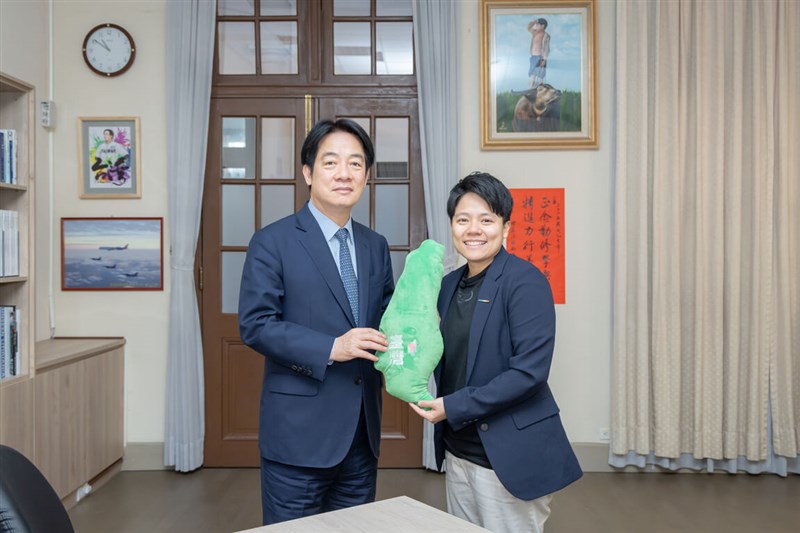
Taipei, May 17 (CNA) President Lai Ching-te (賴清德) nixed the idea that cross-Taiwan Strait dialogue could be based on cooperation with Taiwan's opposition parties, as the different parties pursue fundamentally different approaches to China.
In an interview with podcast host Mindy Huang (黃以萱) on her Youtube channel Mindi World News, Lai reiterated his Democratic Progressive Party's (DPP) long-held belief that opposition parties generally support the "One China principle," either through the "1992 Consensus" or concepts like "both sides of the Strait are one family."
The "One China principle" is Beijing's view that the People's Republic of China (PRC) is the sole legitimate government of China and that Taiwan is an inalienable part of China.
The consensus has been described by the opposition Kuomintang (KMT) as a tacit understanding reached in 1992 between the then KMT government of the Republic of China (Taiwan) and the Chinese government.
It has been consistently interpreted by the KMT as an acknowledgment by both sides that there is only "one China," with each side free to interpret what "China" means.
The "one family" concept, used by the Chinese leadership to promote unification, was echoed by then Taipei Mayor Ko Wen-je (柯文哲) in 2015 to support cross-strait exchanges.
Ko later founded the opposition Taiwan People's Party but was forced to resign as chairman in Dec. 2024 because of corruption allegations.
On the other hand, Lai said, the DPP holds that the Republic of China (Taiwan) and the People's Republic of China are not subordinate to each other, and that Taiwan's future must be decided by its 23 million people.
Lai also criticized what he called China's increased military activity and psychological warfare, saying that such aggression was aimed at forcing unification and challenging the rules-based international order.
To deal with that threat, he reiterated his administration's "Four Pillars of Peace" strategy, which focuses on national defense, economic resilience, global partnerships with democracies, and stable cross-strait leadership based on principles.
He reaffirmed that Taiwan remains open to dialogue with China, but only on the basis of equality and mutual respect, a position shared with his predecessor Tsai Ing-wen (蔡英文) that has never drawn a positive response from Beijing.
Taiwan, he said, prefers engagement over confrontation and exchange over containment, aiming for peaceful coexistence and shared prosperity.
Lai also warned that China's current strategy toward Taiwan and the world has failed to deliver results and may be backfiring.
Citing what he saw as U.S. policy shifts, such as its increased focus on the Indo-Pacific, Lai urged Beijing to reconsider its approach, asking, "Is this really what China wants?"
On the issue of the U.S.' "reciprocal" tariffs, Lai said current negotiations are aimed at preventing the tariffs imposed on Taiwan from exceeding 10 percent.
- Society
Hualien townships finalize evacuation plan as tropical storm looms
10/16/2025 07:03 PM - Business
Giant begins reimbursing migrant workers for broker fees
10/16/2025 06:48 PM - Cross-Strait
Taipei, Shanghai zoos to do African penguin, red panda trade in 2026
10/16/2025 06:32 PM - Business
TSMC expects 2025 sales to grow almost 35%
10/16/2025 06:15 PM - Society
Ex-legislative candidate guilty of Anti-infiltration Act violations
10/16/2025 06:12 PM